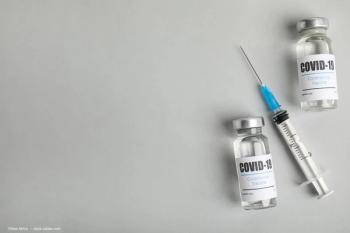
COVID-19: Is pandemic accelerating trend toward ASCs?
With patient confidence and safety concerns increasing amid the COVID-19 pandemic, the trend toward performing procedures in an ambulatory surgery center could be hastened for ophthalmologists.
With patient confidence and safety concerns increasing amid the COVID-19 pandemic, the trend toward performing procedures in an ambulatory surgery center could be hastened for ophthalmologists.
Guidance has been offered by the American Academy of Ophthalmology, the American Society of Cataract and Refractive Surgery and the Outpatient Ophthalmic Surgery Society for reopening ambulatory surgery centers.
While ASCs have proven to be a good choice for ophthalmologists, particularly cataract surgeons, because they let them use their time efficiently while delivering excellent care without the hassles of working in a larger hospital setting, the move toward ASCs has been somewhat slow.
Not a new trend
Peter J. McDonnell, MD, chief medical editor of Ophthalmology Times,® and director of the Wilmer Eye Institute, Johns Hopkins University School of Medicine, Baltimore, pointed out that the trend to move more and more eye surgery into ASCs is not a new one, but has actually been happening over a couple of decades.
“In some states (including Maryland where Dr. McDonnell works) governors have announced that they will allow ASCs to open for non-urgent surgical procedures before they will allow hospitals to perform the same procedures,” he explained.
However, Dr. McDonnell said this reflects the perception that hospitals are more “dangerous” environments because of the presence or potential presence of coronavirus patients. As a result, patients are wary of hospital settings and the risk for possible contamination during the pandemic.
“I believe a wary public will also favor avoiding hospital environments for a while,” he said. “Thus, I do think the pandemic will accelerate the trend for ophthalmologists to move their cases to ASCs whenever possible, and put pressure on payers to increase the number of procedures for which they will reimburse when performed in ASCs.”
Need to resume elective cataract surgeries
According to Uday Devgan, MD, FACS, FRCS, who is in private practice at Devgan Eye Surgery in Los Angeles and Beverly Hills, there is a need to resume elective cataract surgery in this country. He noted that the questions are when and how much does the industry ramp up?
“I suspect that COVID-19 will change the way we deliver surgery in ASCs for the foreseeable future, including maintaining distance between patients, using more personal protective equipment, screening for potential systemic infections, and more,” Dr. Devgan said. “This will likely mean fewer patients having surgery per operating room per hour, which is a significant lessening of the efficiency that we are used to.”
The pandemic could shift procedures from a hospital OR to an ASC to ease patient confidence and safety concerns. “We will take it week by week, while keeping our patients' best interests and safety first,” Dr. Devgan added.
The ASC setting also may have more flexibility and may be better suited to handle the high volume of cataract procedures that have been delayed due to the pandemic compared with a current hospital setting, which may be taxed due to coronavirus issues.
ASC Checklist for Reopening
All ASCs should follow every requirement set by their individual state, county and city in order to resume operations, according to the
The
The Ambulatory Surgery Center Association also contributed to the development of this checklist. The list offers key points for administration, clinical/infection prevention, life safety, sterilization, and pharmacy.
“This virus is still with us,” the AAO said in a statement on its website. “We simply must use our accumulated experience and scientific information and adapt to it. We must be thoughtful and careful-for our patients, our staff and colleagues, and for ourselves and our families.”
On May 4, according to the
Newsletter
Don’t miss out—get Ophthalmology Times updates on the latest clinical advancements and expert interviews, straight to your inbox.





























